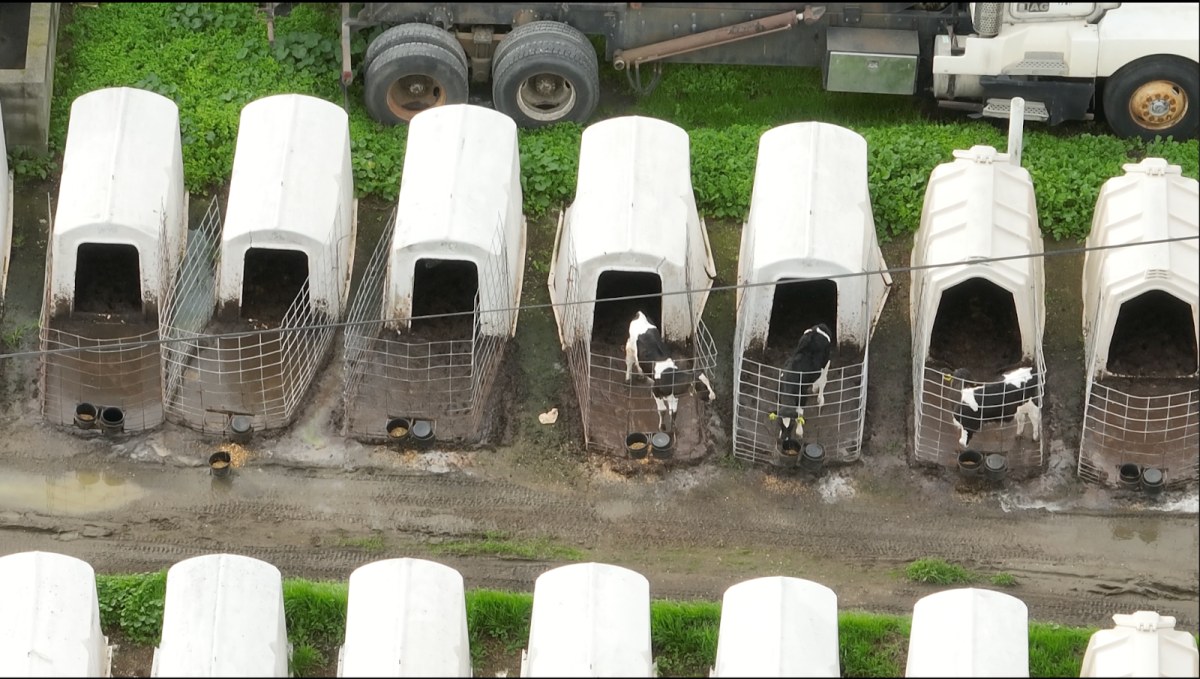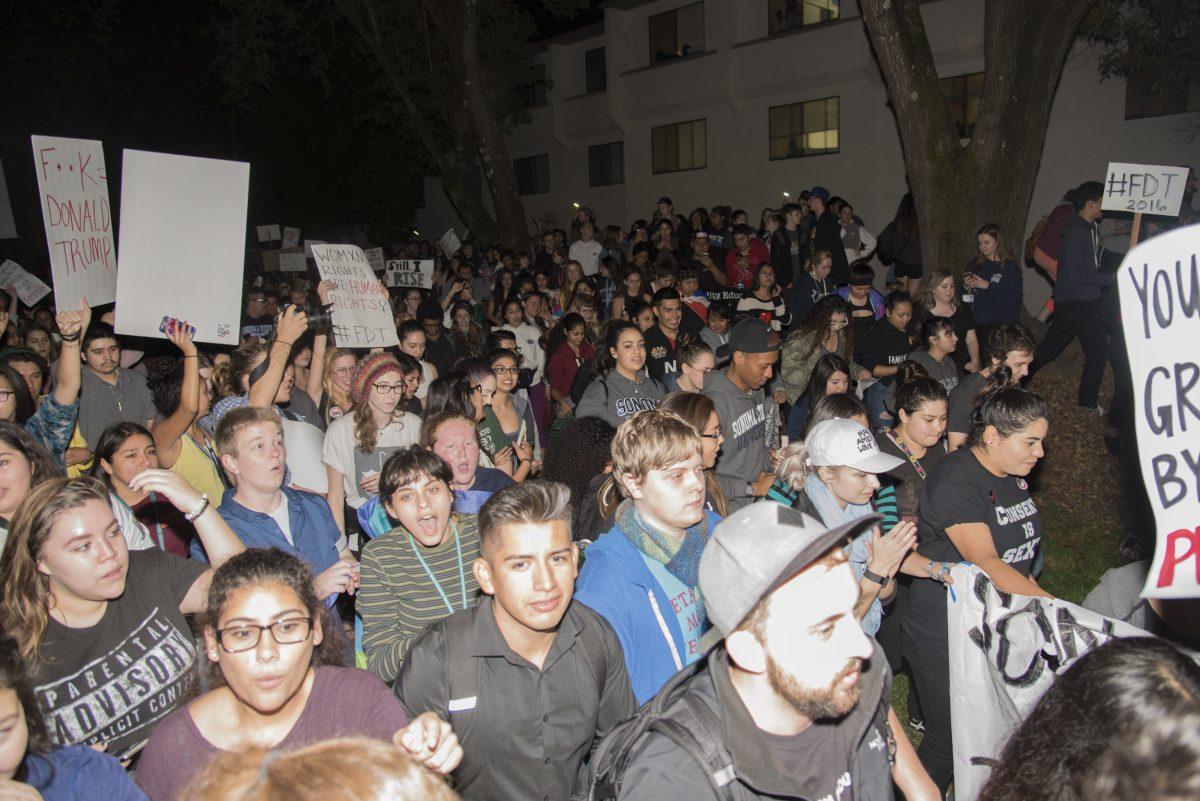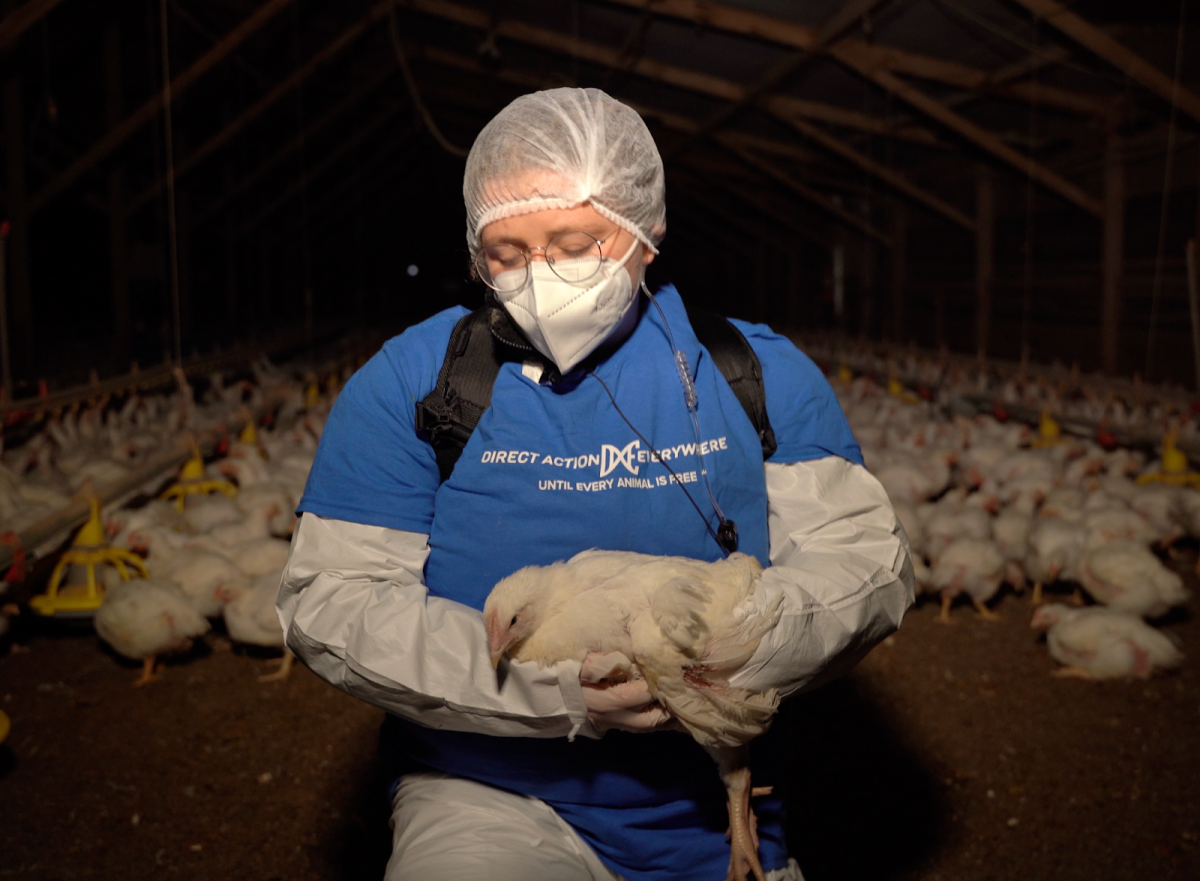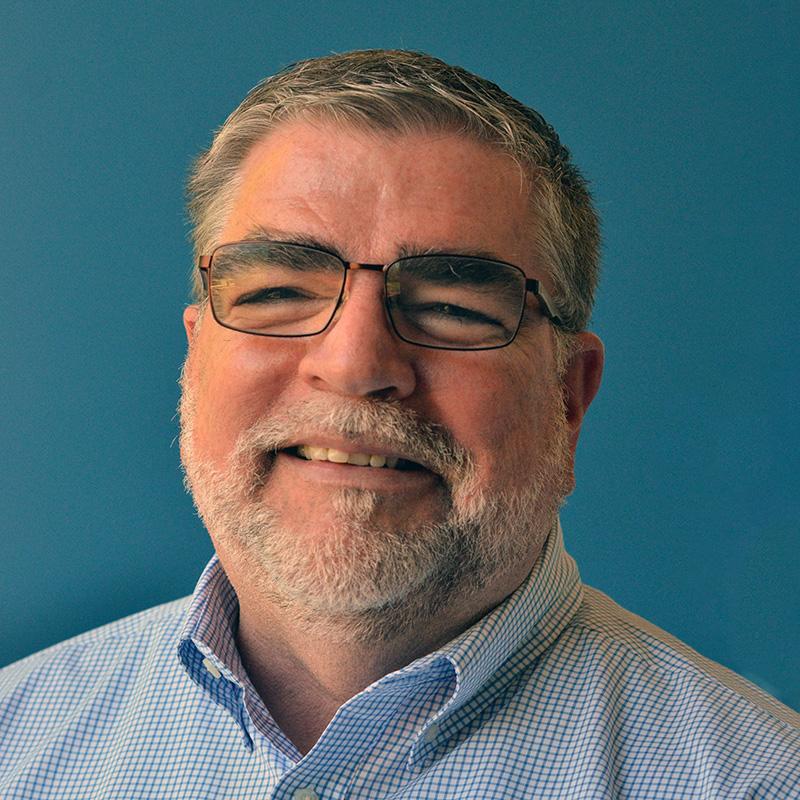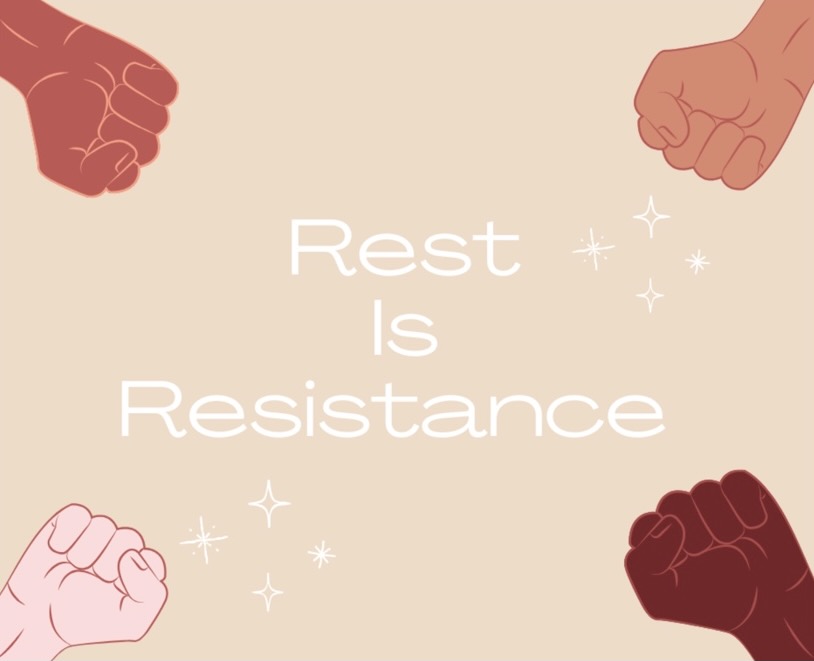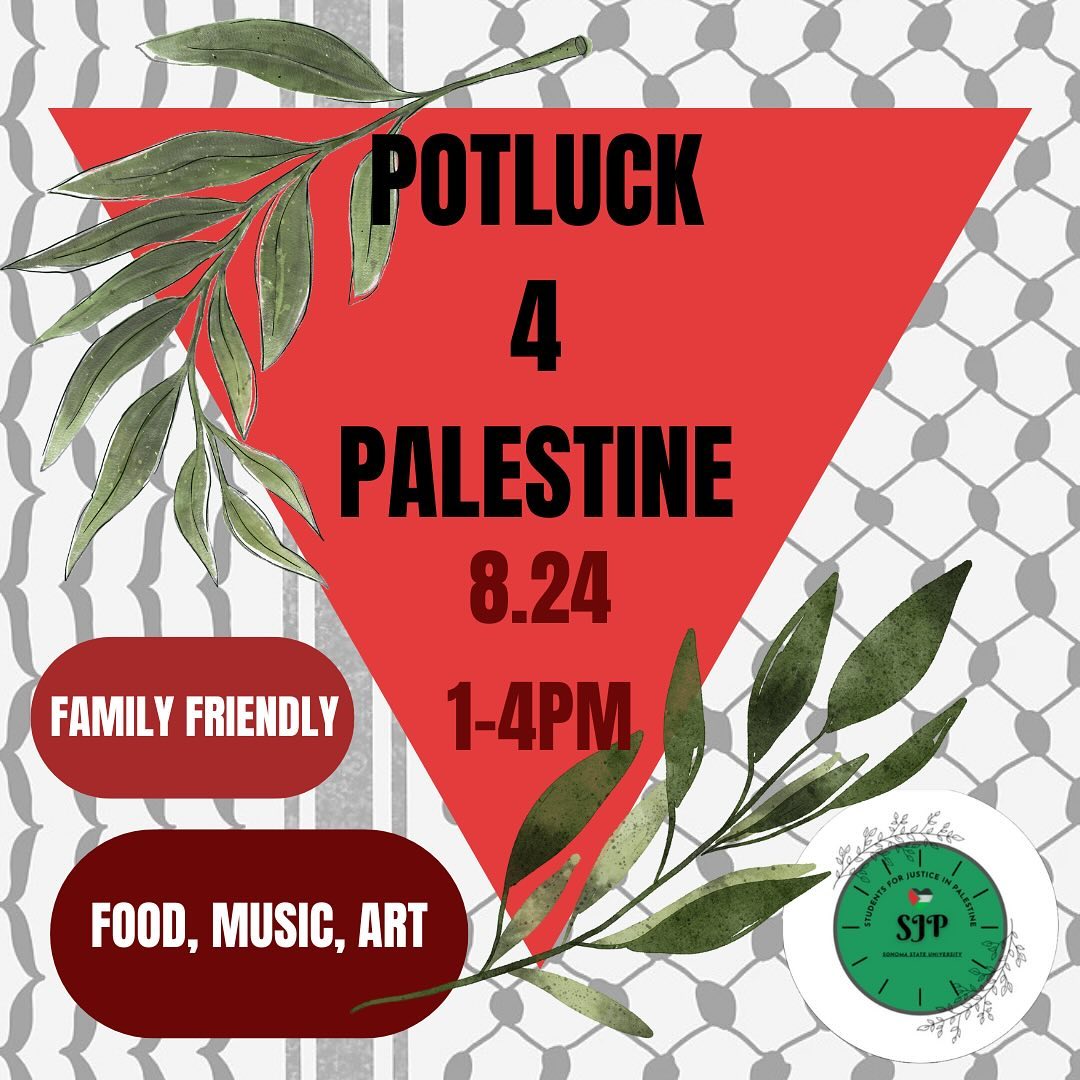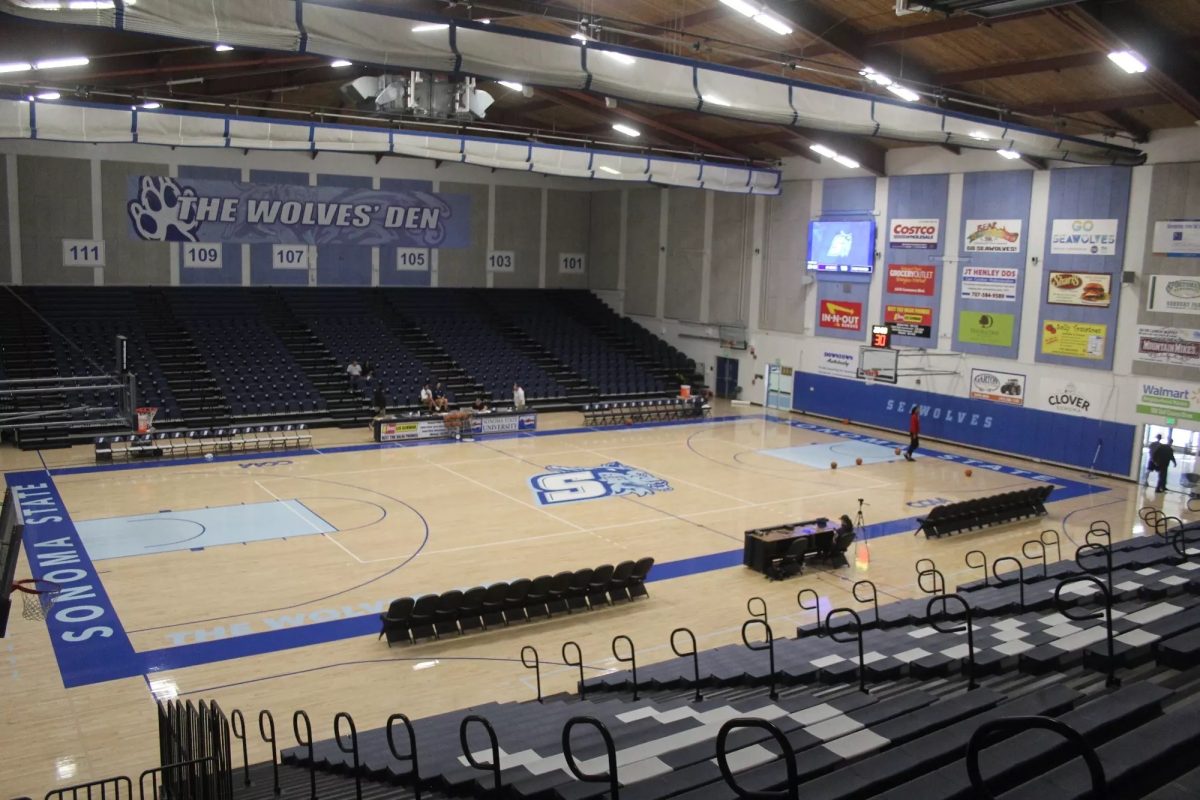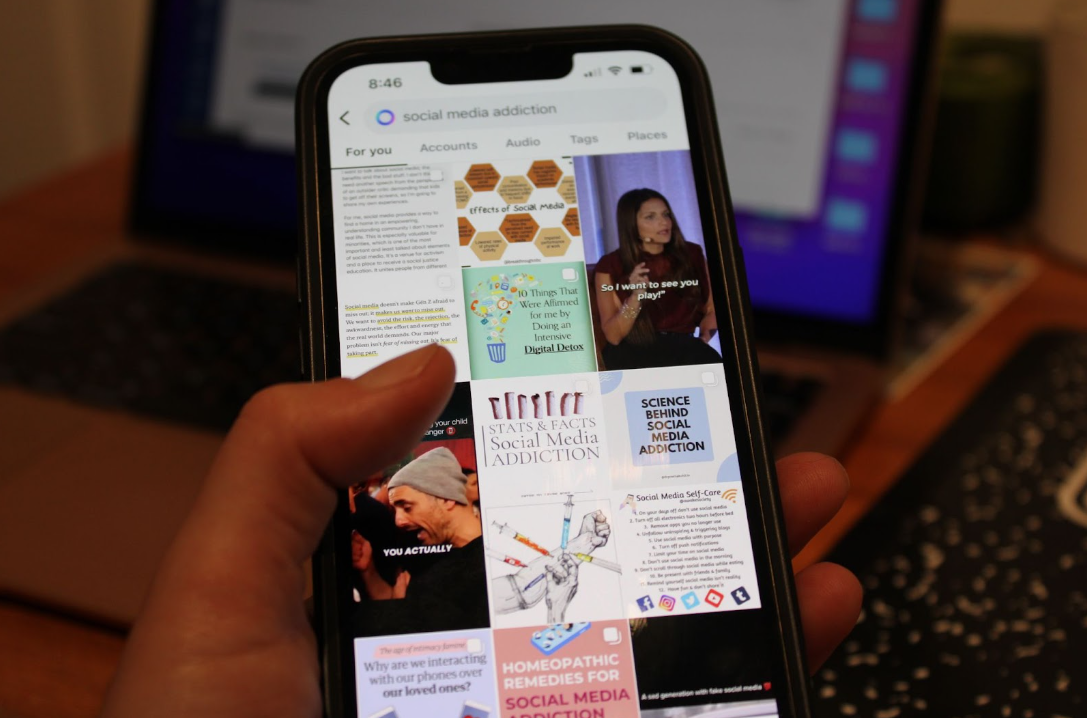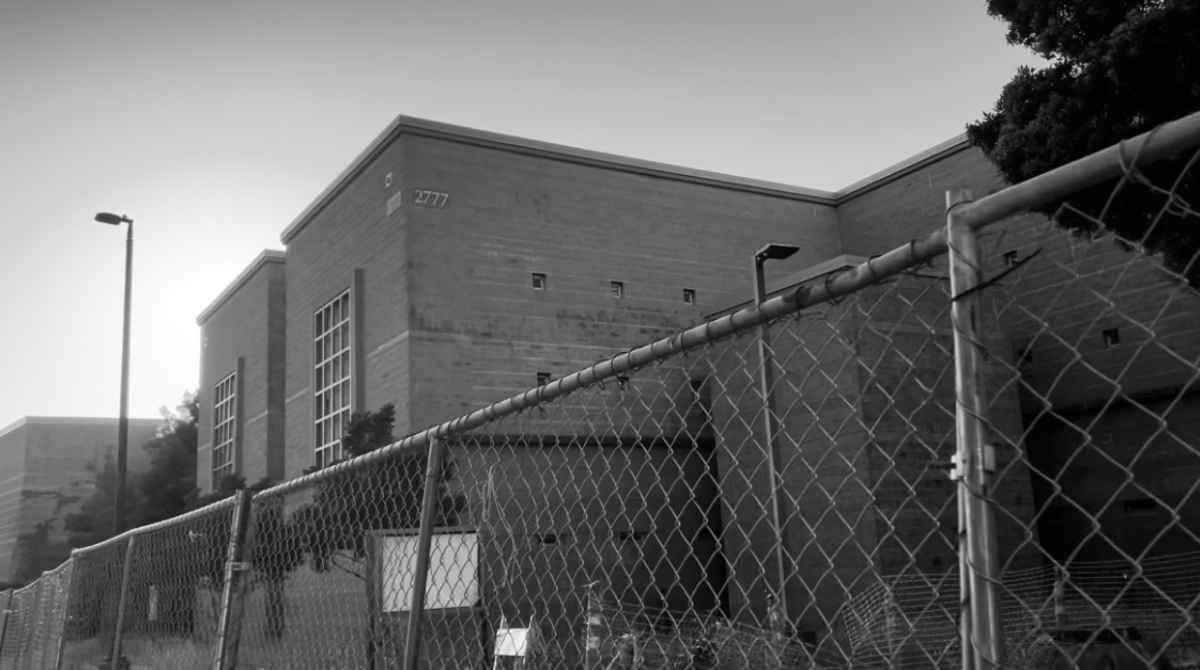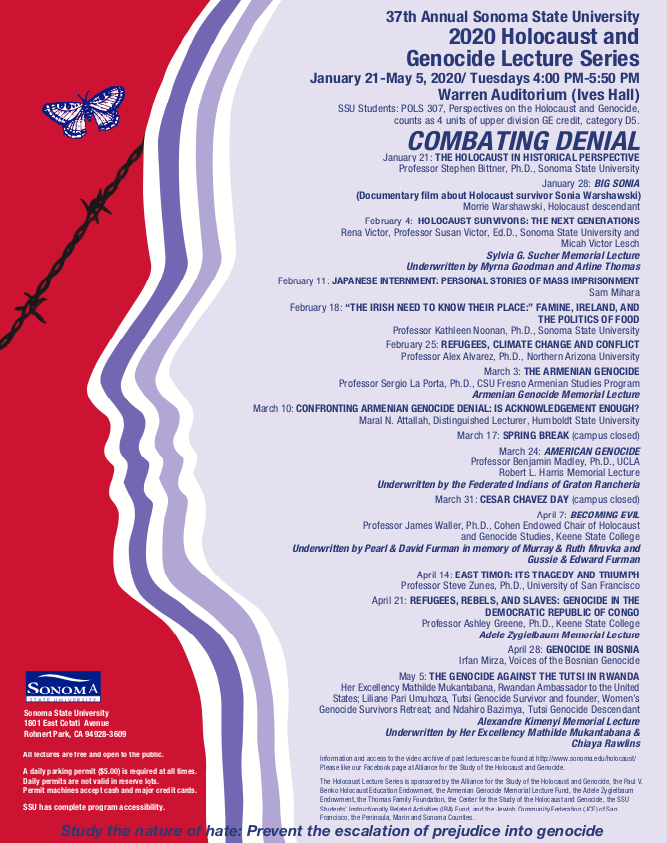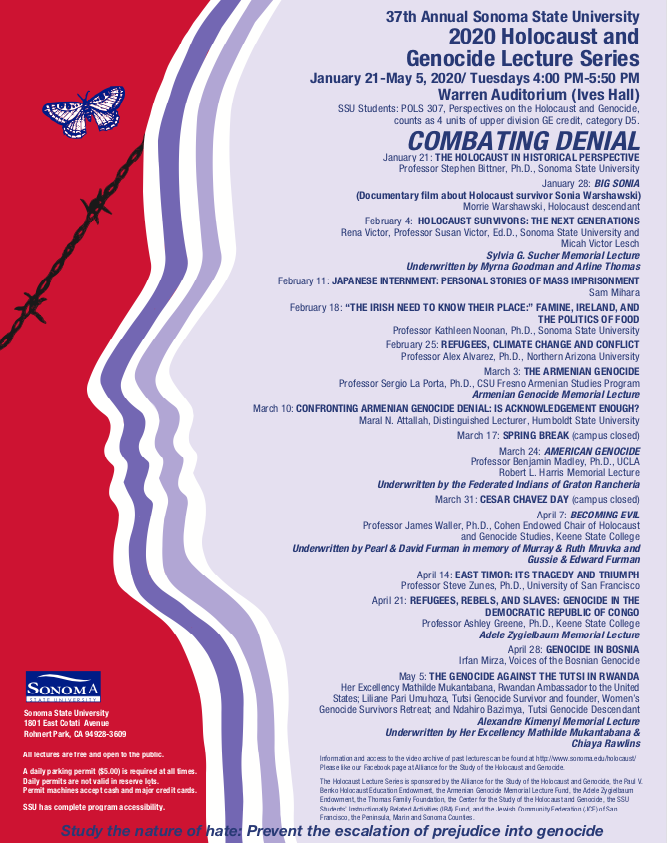Sonoma State University is presenting their 37th annual Holocaust and Genocide Lecture Series from Jan. 21 to May 5. These lecture series aim to provide students with the chance to get a deeper understanding of the Holocaust and genocide.
“The lectures are open to all students, faculty and the community. We have a broad following of people interested in these topics and who come to several of our lectures. We welcome their attendance and participation in our question and answer sessions following the presentations,” said Academic Coordinator, Diane Parness.
The lecture series will be taking place every Tuesday from 4:00 p.m. to 5:50 p.m. in the Warren Auditorium in Ives Hall 101. Not only are these lectures open to all community members, but students also have the opportunity to receive upper-division General Education credit. Each year, Sonoma State enrolls about 100 students into the POLS 307 Persepctives on the Holocaust and Genocide course, in which students earn credit by completing the required assignments and attending lectures in the series.
There are a wide breadth of speakers and some are familiar faces to campus. Stephen Bittner, Susan Victor, and Kathleen Noonan are among the few Sonoma State professors that will be lecturing during the series.
Every year the lecture series has a different theme. This year, the theme is titled, “Combating Denial.” The Center for the Study of Holocaust and Genocide explains how this theme is tragically appropriate for the current political climate.
“Our topics are designed to cover important perspectives on the Holocaust and other key genocides. While we always devote several lectures to the Holocaust, the speakers and subjects vary each semester. We also look at different genocides every year,” said Dianna Parness, the Lecture Series Coordinator. “This year, we will feature lectures on some topics that are entirely new to the lecture series, including the Irish famine, the genocide in East Timor, and the ongoing crisis in the Democratic Republic of Congo. We are very excited about all of these lectures.”
Parness, alongside various members of the Alliance for the Study of the Holocaust and Genocide, work together to create a theme that is designed to cover important perspectives on the Holocaust and other key genocides.
“Our annual theme is typically the product of discussion involving me, as the Lecture Series Coordinator, and various members of the Alliance for the Study of the Holocaust and Genocide. We are often moved by the current political climate and crises that demand our attention,” said Parness.
These lecture series have allowed many voices of various speakers to be heard. The Center for the Study of Holocaust and Genocide states how these lecture series are often strengthened by the participation of Holocaust survivors, liberators, rescuers, and the contributions of active researchers in the field. The lectures become more powerful when the inclusion of personal eyewitness accounts of Holocaust survivors and recent genocide survivors share their story.
“Among my most memorable moments from my six years as Coordinator are the testimonies of survivors and witnesses of genocide. Those stories have undeniable power. We also have many survivors or children of survivors who attend and support the series,” said Parness.
Sonoma State itself is greatly impacted by survivors of these horrific tragedies. The Center for the Study of the Holocaust and Genocide Center was established on Sonoma State’s campus by Dr. John Steiner. He was a professor and a survivor of the death camps of Auschwitz and Dachau.
This event is sure to touch those who attend. Again and again, students bring up how the Holocaust and Genocide lecture series affected them.
“Every semester we hear from students who say this lecture series changed their lives and their determination to get involved in the struggle to halt the threat of genocide and combat denial. That is a critical part of our purpose,” said Parness.
The lecture series has officially begun, and the Sonoma State community is welcome to participate and learn more about pivotal events that occurred throughout history. A special lecture will be hosted on Feb. 4 by Sam Mihara, about the Japanese Internment during WWII. The community is welcome and encouraged to attend.

